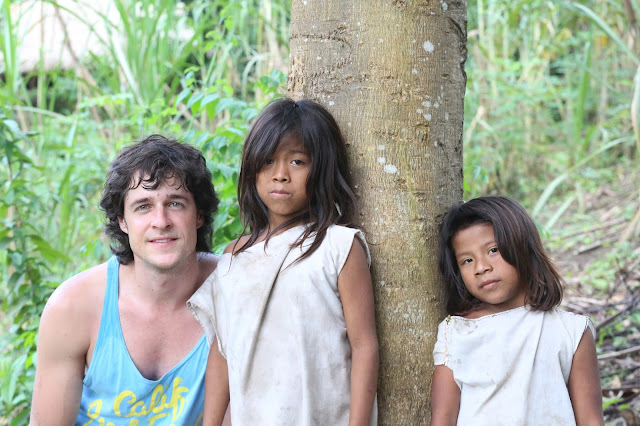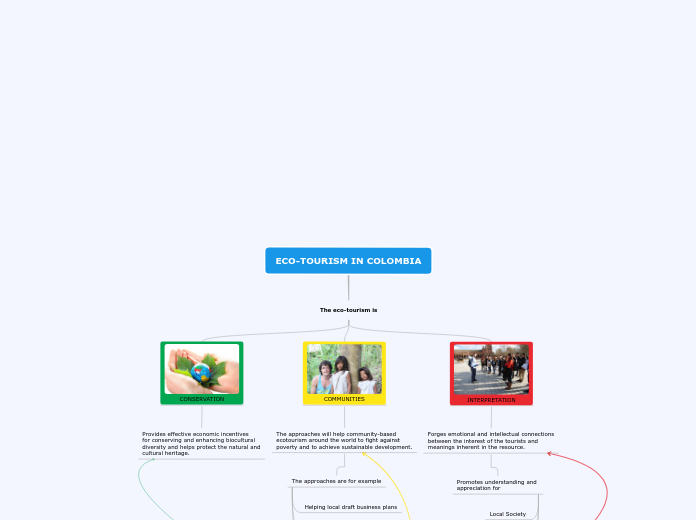ECO-TOURISM IN COLOMBIA
The eco-tourism is

CONSERVATION
Provides effective economic incentives
for conserving and enhancing biocultural
diversity and helps protect the natural and
cultural heritage.

COMMUNITIES
The approaches will help community-based
ecotourism around the world to fight against
poverty and to achieve sustainable development.
The approaches are for example
Helping local draft business plans
Employment opportunities
Promote new avenues to market

INTERPRETATION
Forges emotional and intellectual connections
between the interest of the tourists and
meanings inherent in the resource.
Promotes understanding and
appreciation for
Local Society
Nature
Culture
Colombia is one of the best places in the world for ecotourism
Because
Offers the ecotourist a
mind-bloggling array of options
Most common activities in ecotourism involve hiking, trekking, visit volcanoes, river rafting, bird watching, whale watching, horse riding, camping, surfing and snorkelling.
The places in Colombia are

CARIBBEAN COAST
Represent 11.6% of the
territory
Colombia's Caribbean Coast
stretches from Panama on the
west to Venezuela on the east
Composed of eight Departments
Have more that 14 beaches

PACIFIC COAST
Beaches like Nuqui, Bahia
Solano, La Barra and Ladrilleros
Hundreds of humpback whales
migrate to mate and calve
Some turtle species to deposit
their eggs in the beaches

ISLANDS
San Andres and Providencia
Rosario Islands
Pacific Islands like Gorgona
and Malpelo

ANDES MOUNTAINS
The Cordillera Occidental
The cordillera Central
The cordillera Oriental
These mountains are home to
many landscapes, flora and fauna
and ancient ruins.

EASTERN PLAINS
Colombian llaneros
Is home of the animals like
jaguars, tapirs, ocelots, etc
Composed for three Departments
Are a huge area of grassland that
floods for seven months of every
year and dries up for the remaining
five.

AMAZON JUNGLE
Represent 41% of the
territory
Remote towns
Natural reserves
Wildlife parks
The amazon river is the largest
in the world. 6800 kilometers.
Indigenous reservations.
Is the most bio-diverse country per
square meter in the world

